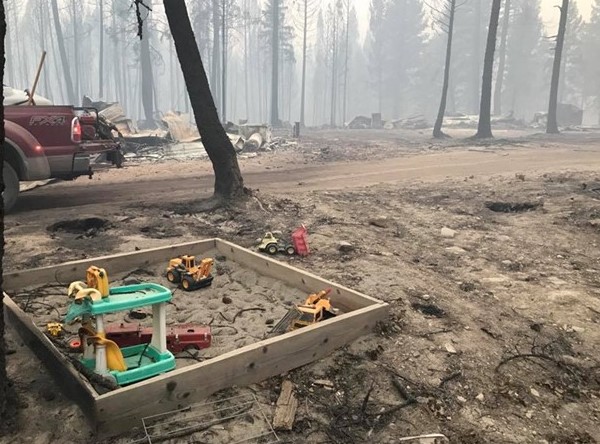At Montana Community Foundation, Inc. (MCF), we have been reflecting on what happens when we say yes—yes to new programs, yes to new ideas and yes to taking big risks. If you had asked us, a statewide community foundation, to discuss disaster philanthropy six months ago, we wouldn’t have had much to say, at least not in the personal meaningful manner we desire.
But, things change and they change fast.
Recently, when wildfires began to rage in every corner of Montana, we asked ourselves and our community how we might help. We said yes. We didn’t fully know what that would mean and we knew we might not have all the tools or the capacity, but saying yes has been transformational and it has led us on our winding journey through disaster philanthropy.
In Montana, we know summer will always bring wildfires, and we always do what we can to be the best possible stewards of our natural resources. We plan our summer adventures accordingly! But last summer, Montana experienced our worst drought on record, one of the worst wildfire seasons on record and the worst smoke on record. From corner-to- corner, wildfires raged, 1.3 million acres burned, and two young firefighters lost their lives.

It is pretty unbelievable that in Montana, volunteer fire departments make up more than 90% of fire departments in our state. These volunteers are usually the first to respond and the last to leave during the wildfire season. As the wildfire season grew worse, we knew MCF needed to do something. We knew we could be a philanthropic partner.
In early September, we said yes to creating the Montana Wildfire Relief Fund to support Montana’s volunteer fire departments and the charitable organizations that provided service and support to folks across Montana affected by the wildfires. In four months, contributions surpassed $600,000 from Montanans as well as friends near and far. We also made the decision to waive administrative fees. We could never have anticipated the number of gifts that came in. There were weeks when multiple staff, from the time they arrived in the morning until they went home, did nothing but enter gifts from across the country.
It is an incredible thing to be the go-to place for Montana’s philanthropic dollars, but our journey into disaster philanthropy didn't stop there. It was just the beginning.
We had no idea the Montana Wildfire Relief Fund would lead us to developing a partnership with the Center for Disaster Philanthropy’s (CDP) Midwest Recovery Fund. Through this partnership, we were able to host the Montana Wildfire Early Recovery Workshop, Montana’s first-ever statewide conversation around disaster recovery. Funding and facilitation support from CDP’s Midwest Recovery Fund brought together a diverse cross-section of Montanans to begin healing and identify how we might recover from this summer’s disaster and better prepare for future disasters. We are now in the process of planning a second workshop to continue the disaster recovery conversation. We did not anticipate the enthusiastic response we received from our Early Recovery Workshop participants, but they asked for another workshop to continue the conversation. And again, we said yes.
Yes to new and expanding partnerships across Montana. Yes to convening statewide conversations focused on disaster philanthropy and recovery. Yes to partnering with Montana Disaster and Emergency Services in the development of a statewide disaster plan. Yes to our commitment to being the go-to place for disaster philanthropy in Montana.
We are still learning what it means for us to work in disaster philanthropy. As a result of saying yes to establishing the Montana Wildfire Relief Fund, we continue to learn how we partner, how we think creatively and how respond effectively. It's a journey, but we're dedicated to saying yes to taking risks and showing up for our state.
Looking back, we are thankful we said yes. Looking forward we will continue to say yes.
If you are interested in continuing the conversation, or finding ways to help, the first step is saying yes.